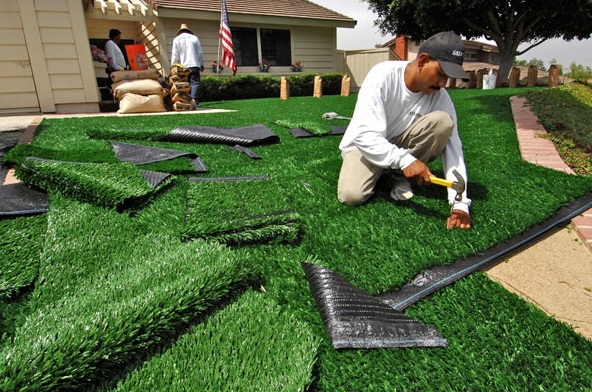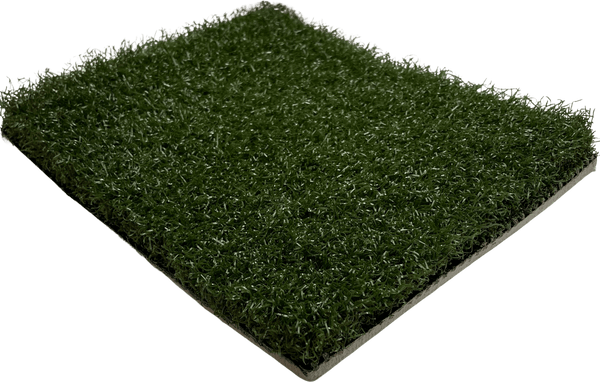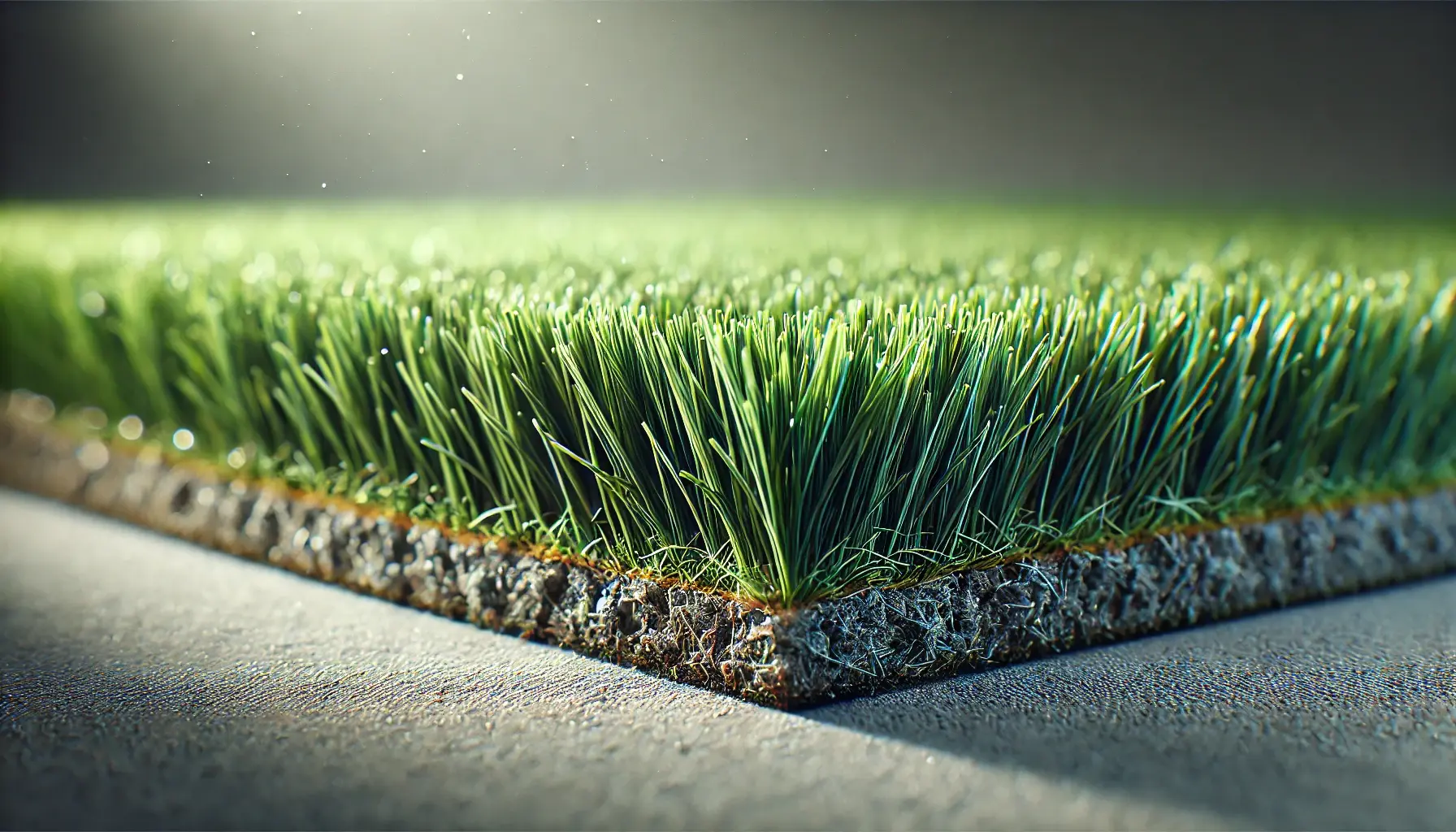Budget-Friendly Turf Installation Phoenix AZ for a Low-Maintenance Lawn Option
Budget-Friendly Turf Installation Phoenix AZ for a Low-Maintenance Lawn Option
Blog Article
Look Into the Environmental Perks of Opting for Artificial Lawn Solutions
The adoption of man-made grass remedies presents an engaging possibility to attend to pressing environmental difficulties. By substantially reducing water usage and decreasing the application of damaging chemicals, these options not only advertise lasting landscape design yet likewise shield local environments.
Water Conservation Conveniences
One of the most significant benefits of artificial lawn is its capability to conserve water. In comparison, fabricated grass does not need watering, dramatically reducing the total need for water resources.
By removing the demand for normal watering, synthetic grass adds to sustainable landscape practices and aids mitigate the ecological effect of extreme water intake. Additionally, the preservation of water encompasses the reduction of drainage, which can lead to dirt disintegration and river air pollution.
Additionally, the installment of synthetic grass permits home owners and municipalities to designate water sources extra effectively, concentrating on vital usages such as drinking water and agriculture. The change in the direction of man-made grass not only promotes accountable water use yet additionally lines up with broader environmental goals focused on maintaining natural deposits.
As neighborhoods increasingly focus on sustainability, the water preservation advantages of man-made grass present a compelling instance for its fostering in domestic and industrial landscaping tasks.
Reduced Chemical Use
The change to artificial turf considerably lowers the reliance on chemical therapies frequently used in natural grass maintenance. Standard turf administration generally involves the application of chemicals, plant foods, and herbicides to advertise growth and control pests. These chemicals can pose dangers to human health, neighborhood wildlife, and the setting, contributing to dirt and water contamination.
In contrast, synthetic turf gets rid of the need for these dangerous materials. As soon as mounted, it requires very little upkeep, mainly including regular cleansing and occasional infill replenishment. This reduction in chemical use not just benefits the instant environment but also adds to broader ecological security. By reducing the release of artificial substances right into the environment, synthetic grass advertises much healthier soil and water systems.
Moreover, the lack of chemical overflow related to synthetic grass installments helps secure local waterways from pollution, sustaining aquatic life and preserving biodiversity. Artificial turf companies phoenix. As areas increasingly prioritize sustainable techniques, opting for man-made lawn offers a feasible remedy that aligns with environmental conservation goals. With this change, residential property proprietors can delight in rich green areas without jeopardizing environmental health, paving the method for an extra lasting future
Reduced Carbon Impact

Additionally, the installment of synthetic grass can cause significant water preservation. Natural lawns require substantial quantities of water for watering, which not just contributes to the carbon footprint connected with water removal and therapy yet also stress regional water sources. In comparison, artificial turf needs very little maintenance, needing no watering, consequently significantly reducing water use and its associated power costs.
Additionally, the long life of synthetic grass adds to its reduced carbon impact. With a lifespan of as much as 15 years or more, the need for frequent substitutes is lessened, resulting in much less waste and reduced power usage in manufacturing and disposing of traditional grass alternatives. Overall, synthetic grass presents a lasting alternative for eco aware landscape design.
Environment Preservation
Habitat conservation is an essential factor to consider in the debate over landscape design options, specifically when comparing synthetic grass to all-natural turf. Natural yard lawns commonly need extensive upkeep, including the use of fertilizers, herbicides, and chemicals, which can negatively impact regional ecological communities. These chemicals can leach right into the soil and rivers, damaging native vegetation and fauna and interfering with regional environments.
Synthetic turf gets rid of the demand for harmful chemicals, thereby safeguarding close-by wildlife and preserving the stability of bordering communities. The setup of synthetic grass can lead to the conversion of former yard areas into more biodiverse landscapes, such as pollinator yards or indigenous plant areas, which can sustain local wild animals.
Inevitably, the change to man-made lawn not only saves water and decreases upkeep initiatives but likewise promotes a much more harmonious relationship in between human activities and the native environment, promoting try this environment conservation at the same time.
Long-Term Sustainability
Long-term sustainability is a vital aspect in examining the advantages of synthetic grass over typical yard lawns. One of one of the most considerable benefits of synthetic turf is its resilience; it can last approximately 15-20 years with marginal maintenance, whereas all-natural turf needs constant reseeding and replacement. This longevity lowers the demand for consistent resources, such as water, plant foods, and pesticides, which are important for keeping a healthy grass yard.
Additionally, synthetic grass adds to a decrease in carbon emissions connected with grass care devices. Traditional yards frequently call for gas-powered mowers, leaners, and blowers, all of which contribute to air pollution. Arizona artificial turf. On the other hand, artificial grass removes the need for such devices, advertising a cleaner environment
In addition, the production of synthetic grass increasingly utilizes recycled products, enhancing its sustainability profile. As makers take on environmentally friendly techniques, the environmental footprint of synthetic Your Domain Name grass continues to decrease.

Verdict
The fostering of synthetic lawn services offers substantial ecological advantages, consisting of substantial water preservation, decreased dependence on hazardous chemicals, and a lower carbon impact. Synthetic turf help in preserving natural environments by minimizing land disturbance and advertising long-lasting sustainability via the use of long lasting products. Jointly, these elements underscore the capacity of synthetic grass to contribute favorably to environmental health and wellness and supply a practical option to traditional landscaping techniques in an increasingly resource-conscious world.
In comparison, fabricated turf does not need watering, dramatically reducing the total need for water resources. By reducing the launch of artificial compounds discover this info here into the environment, fabricated lawn promotes much healthier dirt and water systems.
Additionally, the installment of fabricated turf can result in considerable water conservation. In comparison, man-made lawn requires marginal upkeep, calling for no watering, therefore significantly decreasing water usage and its associated energy costs.

Report this page